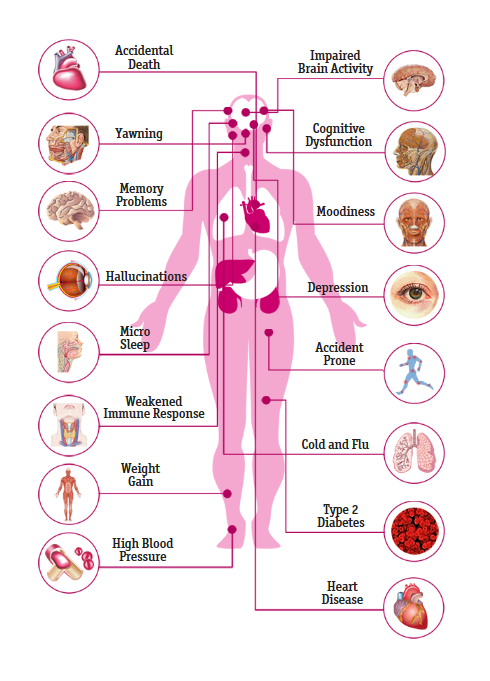Sleep: The Greatest (legal) Performance Enhancing Drug on the Market
- woodburyspinemarke
- Aug 24, 2021
- 4 min read
Did you know that we as humans are the only species on the planet that forgoes, on purpose, getting the full amount of sleep that our bodies crave? I hear it all the time, “I’ll sleep when I’m dead”, “I function better off of less sleep”, and “how are you ever supposed to get anything done if you sleep all night?” The list goes on and on. Yet, sufficient sleep may just be one of the most essential elements towards quality health and longevity, productivity, athletic performance, Alzheimer's prevention, immune function, and even increased libido.
Just how much sleep should one get? The ideal number is approximately 8 hours per night with an ok range between 7-9 hours. Yet, 1 out of 2 adults is not getting 8 hours, and 1 out of 3 is getting just 6 or fewer hours per night! This phenomenon of getting less sleep is relatively new. We have reduced our average sleep per night by 20% in just the last 100 years. The health effects of this have been catastrophic.

There is an ever larger list of negative health outcomes when it comes to not getting enough sleep. Some of these include lack of alertness, memory loss, mood swings, depression and anxiety, increased blood pressure, and a greater likelihood of having a stroke or developing type 2 diabetes. If that isn’t enough reason to get you thinking about getting a little more shut-eye, let’s take a deeper look at a few more detriments of sleep deprivation.
Lack of sleep is a critical component to the obesity epidemic the U.S. is in. A majority of the people I work with often would like to “lose a little weight”. Well, it turns out sleep also contributes to your propensity to gain or lose weight. We have two hunger hormones that regulate our appetite - leptin tells your brain you are full, and ghrelin tells your brain you are hungry and to store fat. I bet you can guess what a lack of sleep does. Yep, getting less than six hours per night ramps up your ghrelin production, and suppresses your leptin production. This causes you to want to eat more (especially carbohydrate rich foods and processed food) and store excess fat.
A reduction in sleep has a direct correlation with decreased performance. Academically speaking, high school students getting more than 8 hours of sleep per night are less likely to skip school or be tardy, they get better grades, have higher ACT/SAT scores, are less likely to engage in risky behavior, and they report less symptoms of depression. Because sleep deprivation leads to very similar behaviors as someone with ADHD, it is believed that many adolescents diagnosed with ADHD could simply be underslept. Yet, those kids are prescribed stimulants for ADHD, further escalating their troubles with sleep. Sleep is also imperative when it comes to athletic performance. One study showed that getting 6 hours or less of sleep at night resulted in 30% reduction in time to physical exhaustion. It is shown to cause quicker lactic acid build-up, and a decreased ability of the lungs to transfer oxygen and carbon dioxide. Peak muscle strength, vertical jump height, and peak running speed are all correlated to the amount of sleep one gets the night before! On the flip-side, a lack of sleep is linearly correlated with injuries. One study showed a 60% increase in injuries for a person getting 5 hours vs. a person getting 9 hours! Lastly, when it comes to performance, men getting 5-6 hours of sleep per night on average have a testosterone level of men 10 years their senior. I’ll let you decipher how that might reduce performance ;).

Finally, lack of sleep can be deadly. It has been documented that 20 hours of wakefulness causes a person to be as impaired cognitively as if they were legally drunk. Drowsy driving likely kills more people than both drug and alcohol impaired driving combined. One study showed that an extra 1-2 hours of sleep can reduce teenage car accident deaths by 70%! Sleep also causes deadly diseases like cancer and heart disease. In fact, the World Health Organization classifies any night time shift work as a PROBABLE carcinogen! Just losing one hour of sleep can be extremely detrimental. Every year when we observe daylight savings time, we see a 24% increase in heart attacks after losing an hour of sleep, and a 21% decrease in heart attacks after gaining an hour of sleep!
So alas, what can we do to get better sleep? First off, we must make sleep a priority. Yes, we all have busy lives with kids and work and trying to have a social life. I get it. But, if you want to get more sleep, you have to make time for it. Watching one more episode of your favorite show might have to wait. Be consistent. You should really aim to go to bed at the same time and wake up at the same time each day. An hour before bed you should not only turn off all electronics and devices, you should start to turn off most of the lights in the house. This will stimulate your pineal gland to start secreting the hormones that put you to sleep. The room you sleep in should be fairly cold and very dark. If you can’t keep it dark, try using a sleep mask. Try to avoid going to bed either too full or too hungry. If you need additional support, there are many supplements shown to support better sleep.
We simply must change our perspective on sleep. It is an essential element of the health equation. If you have further questions on sleep or how you can improve your sleep, please don’t hesitate to ask one of the doctors or staff at Woodbury Spine!




Comments